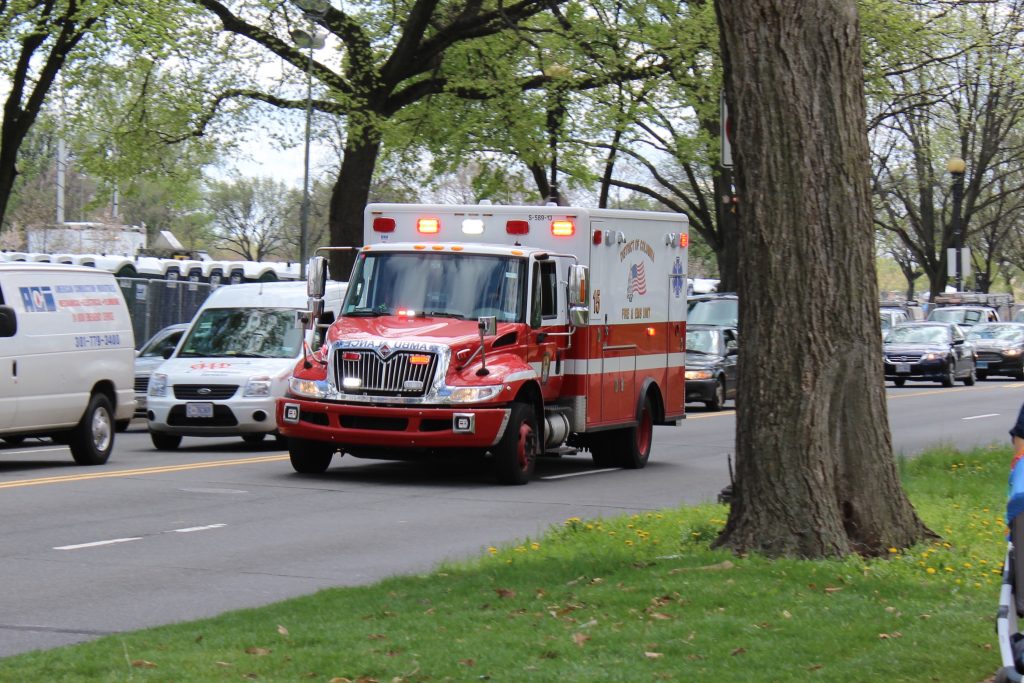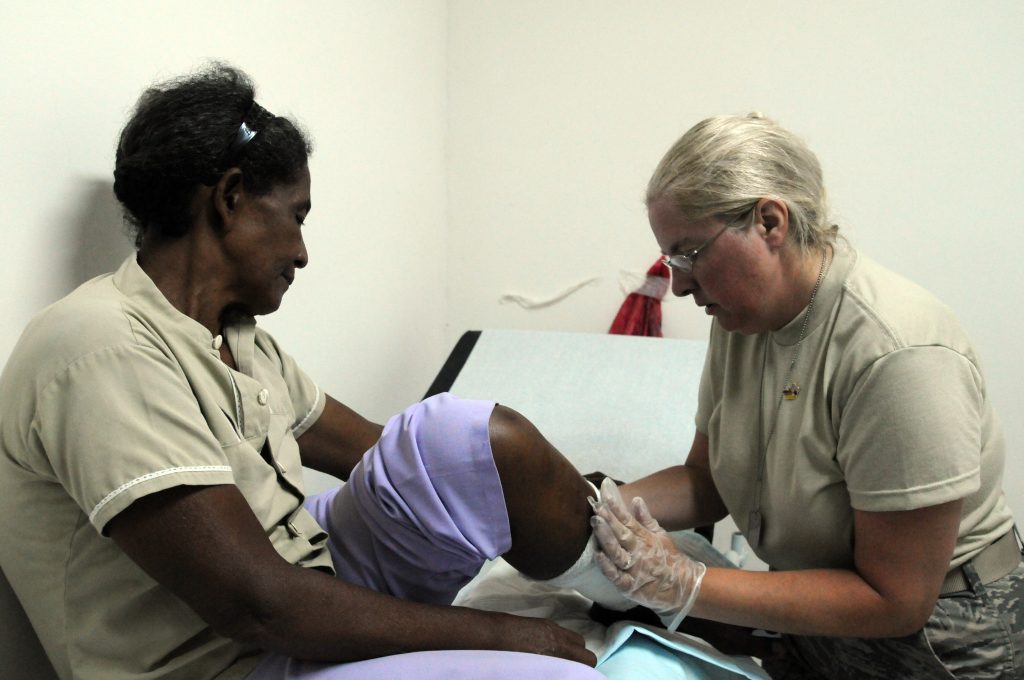 Suffering an on-the-job injury is a challenging experience that involves physical recovery and navigating the complexities of the worker’s compensation system. Determining when and how to return to work can be daunting in such situations. The questions surrounding medical examinations and the responsibility of companies to provide additional medical advice or inspections when an employee is injured are examined in the following case.
Suffering an on-the-job injury is a challenging experience that involves physical recovery and navigating the complexities of the worker’s compensation system. Determining when and how to return to work can be daunting in such situations. The questions surrounding medical examinations and the responsibility of companies to provide additional medical advice or inspections when an employee is injured are examined in the following case.
A longshore foreman, Alexander Scott, injured his hip and lower back when he was hit from behind by a forklift at work. His employer, Port America, set him up with Dr. Steiner, a Physician, to review his injuries. Dr. Steiner told Scott that he reached maximum medical improvement, did not need additional treatment, and was physically fine to continue working. However, Scott was uncomfortable returning to work because he insisted he was still in pain.
Opting not to return to work, Scott sought another doctor’s opinion, Dr. Bostick, who advised him against resuming his employment duties due to his condition. Scott revisited Dr. Steiner, but no additional treatment was provided as his complaints were deemed subjective. Dr. Bostick reiterated his recommendation that Scott abstain from work due to an altered gait, suggesting further physical therapy.
 Louisiana Personal Injury Lawyer Blog
Louisiana Personal Injury Lawyer Blog


 In the face of a potentially unlawful termination from your job, navigating the legal landscape can be daunting. If you suspect that you have been fired unjustly, it is essential to understand the critical elements required to bring a lawsuit against your employer for wrongful or retaliatory discharge. A recent Lafayette Parish case highlights the essential evidence to support a retaliatory discharge claim. It highlights the importance of seeking legal guidance when faced with such a situation. By delving into the details of this case, we can uncover the necessary proof required to establish a compelling retaliatory discharge case and empower individuals to protect their rights in the workplace.
In the face of a potentially unlawful termination from your job, navigating the legal landscape can be daunting. If you suspect that you have been fired unjustly, it is essential to understand the critical elements required to bring a lawsuit against your employer for wrongful or retaliatory discharge. A recent Lafayette Parish case highlights the essential evidence to support a retaliatory discharge claim. It highlights the importance of seeking legal guidance when faced with such a situation. By delving into the details of this case, we can uncover the necessary proof required to establish a compelling retaliatory discharge case and empower individuals to protect their rights in the workplace. New Orleans is well-known for extravagant and entertaining Mardi Gras parades. What happens when an unknown tortfeasor injures someone during a parade? As the following case demonstrates, the claimant only has a certain amount of time to bring a lawsuit against the wrongful party, or they risk dismissal of the claim.
New Orleans is well-known for extravagant and entertaining Mardi Gras parades. What happens when an unknown tortfeasor injures someone during a parade? As the following case demonstrates, the claimant only has a certain amount of time to bring a lawsuit against the wrongful party, or they risk dismissal of the claim.  Medical malpractice claims typically involve allegations of negligence during a medical procedure. However, the following case presents a unique scenario where the alleged injury occurred after the procedure was completed. It examines the legal considerations and challenges in such situations, emphasizing the importance of evidence and expert testimony in establishing a breach of the applicable standard of care.
Medical malpractice claims typically involve allegations of negligence during a medical procedure. However, the following case presents a unique scenario where the alleged injury occurred after the procedure was completed. It examines the legal considerations and challenges in such situations, emphasizing the importance of evidence and expert testimony in establishing a breach of the applicable standard of care. Parents can imagine all sorts of dangerous situations their children could find themselves in walking to school – kidnappings, getting hit by a car, bullying. But what happens if the cause of the injury was a defective sidewalk the city was supposed to maintain? Can the city be held liable? The following case examines the liability of a city when a teenager is injured due to a defective sidewalk in front of her high school.
Parents can imagine all sorts of dangerous situations their children could find themselves in walking to school – kidnappings, getting hit by a car, bullying. But what happens if the cause of the injury was a defective sidewalk the city was supposed to maintain? Can the city be held liable? The following case examines the liability of a city when a teenager is injured due to a defective sidewalk in front of her high school. If your doctor makes an obvious mistake in a surgery, you might think you can succeed in a medical malpractice lawsuit against the doctor. However, Louisiana law does not require a doctor to act perfectly. Therefore, if you are considering bringing a medical malpractice lawsuit against a medical professional, you must understand the applicable standard of care you are required to prove they did not satisfy. This case illustrates how the standard of care a doctor is required to follow depends on the existing circumstances.
If your doctor makes an obvious mistake in a surgery, you might think you can succeed in a medical malpractice lawsuit against the doctor. However, Louisiana law does not require a doctor to act perfectly. Therefore, if you are considering bringing a medical malpractice lawsuit against a medical professional, you must understand the applicable standard of care you are required to prove they did not satisfy. This case illustrates how the standard of care a doctor is required to follow depends on the existing circumstances. You might be eligible for workers’ compensation if you are injured on the job. However, you must be honest in your communications with your employer and medical providers because, under Louisiana law, you forfeit your rights to any such benefits if you make misrepresentations or false statements concerning your workers’ compensation scheme. What happens if these misrepresentations appear to result from memory impairments related to your on-the-job injury? The following lawsuit helps answer this question.
You might be eligible for workers’ compensation if you are injured on the job. However, you must be honest in your communications with your employer and medical providers because, under Louisiana law, you forfeit your rights to any such benefits if you make misrepresentations or false statements concerning your workers’ compensation scheme. What happens if these misrepresentations appear to result from memory impairments related to your on-the-job injury? The following lawsuit helps answer this question. In a medical malpractice lawsuit, there are numerous procedural and evidential requirements with which a plaintiff must comply to support their claim. This case illustrates what can happen if a plaintiff does not comply with these requirements, specifically providing expert testimony supporting the malpractice claim.
In a medical malpractice lawsuit, there are numerous procedural and evidential requirements with which a plaintiff must comply to support their claim. This case illustrates what can happen if a plaintiff does not comply with these requirements, specifically providing expert testimony supporting the malpractice claim. Unfortunately, heart attacks are one of the most common causes of death. If a loved one suffers a heart attack while on the job and you file a workers’ compensation claim, you must provide evidence to support your claim. But what happens if the employer files a motion for summary judgment before you can complete discovery?
Unfortunately, heart attacks are one of the most common causes of death. If a loved one suffers a heart attack while on the job and you file a workers’ compensation claim, you must provide evidence to support your claim. But what happens if the employer files a motion for summary judgment before you can complete discovery?  If you ever find yourself injured in a car accident, it’s crucial to seek legal advice from a licensed attorney in your jurisdiction. Consulting with an attorney can help you understand your rights and determine if you are entitled to compensation, depending on the allocation of fault. Car accidents can be complex, and navigating the legal process requires expert guidance.
If you ever find yourself injured in a car accident, it’s crucial to seek legal advice from a licensed attorney in your jurisdiction. Consulting with an attorney can help you understand your rights and determine if you are entitled to compensation, depending on the allocation of fault. Car accidents can be complex, and navigating the legal process requires expert guidance.